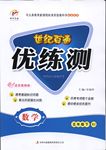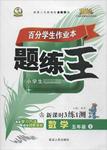题目内容
We were talking about engagement when my boyfriend, Jack, had to go to war. I was so afraid of losing him; the only way I could stay sane(保持清醒) was to dance. I became very good and critics praised me, but I could feel was the ache in my heart, no knowing whether the love of my life would ever return. And then one day a letter from him came:“I have lost my leg. I am no longer a whole man and now give you back your freedom. It is best you forget me.”
I made my decision there and then I left the city. When I returned I had bought myself a cane(拐杖) and learned to limp convincingly. I told everyone I had been in a car crash and that my leg would never completely heal again. My dancing days were over. No one suspected the story. And I made sure the first person to hear of my accident was a reporter. Then I travelled to the hospital. They had pushed him outside in his wheelchair. I leaned on my cane and limped to him.
I told him he was not the only one who had lost a leg, even if mine were still attached to me. I showed him newspaper clippings of my accident. “ There is a whole life waiting for us out there! And I am not going to carry you—you are going to walk yourself.”
I limped a few steps towards him and showed him what I’d taken out of my pocket.” Now show me you are still a man,” I said. He bent to take his cane and struggled out of that wheelchair. I could see he had not done it before, because he almost fell on his face. But I was not going to help. Finally he managed it on his own and walked to me and never sat in a wheelchair again in his life.
What I showed to him was engagement rings. And I would limp with him for the rest of life.
1.The author felt ache in her heart though critics praised her dancing because_______.
A.She wasn’t sure if Jack still loved her.
B.Jack became handicapped and couldn’t walk
C.Jack asked her to forget about him
D.She was afraid that Jack might die in the war
2.What decision did the author make after she received Jack’s letter?
A.To see Jack in the battlefield. B.To leave the city for travel.
C.To give up dancing. D.To see a reporter.
3.What can we learn about the author from Paragraph 2?
A.She visited a hospital. B.She broke her leg.
C.She helped push Jack’s wheelchair. D.She had a car crash.
4.After they met in the hospital, Jack ______.
A.gave her the engagement rings B.got rid of the cane
C.picked up the hope of life D.lived without a wheelchair
5.Which of the following words can best describe the author?
A.Strong and optimistic B.Clever and faithful
C.Timid but faithful D.Brave and helpful.
1.D
2.C
3.A
4.D
5.B
【解析】
试题分析:本文介绍了故事的主人翁我为了爱情做出了巨大的牺牲,最终鼓励男朋友战胜困难的故事。
1.D 细节题。根据第一段3,4行but I could feel was the ache in my heart, no knowing whether the love of my life would ever return说明她很担心她的男朋友是否能够回来。故D正确。
2.C 细节题。根据第2段2,3行I told everyone I had been in a car crash and that my leg would never completely heal again. My dancing days were over.说明C项正确,她为了不让男朋友感觉不好,就伪装成瘸子,只得放弃展开的舞蹈事业。故C项正确。
3.A 细节题。根据第二段第7行Then I travelled to the hospital.说明他取了男朋友所在的医院,故A正确。
4.D 细节题。根据第四段2,3行He bent to take his cane and struggled out of that wheelchair.以及最后Finally he managed it on his own and walked to me and never sat in a wheelchair again in his life.说明他再也没有坐过轮椅,故D正确。
5.B 推理题。作者为了自己的男朋友为了自己的爱牺牲了自己的舞蹈事业,想出了一个很好的方法来安慰自己的男朋友,都说明她很聪明也很忠诚与爱情。故B正确。
考点:考查情感类短文阅读
点评:本文含有很深厚的感情,文章内容较为简单,集中考查细节题,对此类题型?考生可以首先从问题中找到关键词?然后以此为线索?运用略读及查阅的技巧在文中迅速寻找这一细节?找到后再把这一部分内容仔细阅读一遍?仔细比较所给选项与文中细节的细微区别?在准确理解细节的前提下?最后确定最佳答案。

 世纪百通主体课堂小学课时同步达标系列答案
世纪百通主体课堂小学课时同步达标系列答案 世纪百通优练测系列答案
世纪百通优练测系列答案 百分学生作业本题练王系列答案
百分学生作业本题练王系列答案We hear with our ears, right? Yes, but scientists have known for years that we also hear with our eyes. In a study published in 1976, researchers found that people combined both auditory cues(听力提示) and visual ones,like mouth and face movements, when they heard speech.
A new study that looks at a different set of sensory cues adds to a growing body of evidence that suggests such combination is natural. In a paper, Bryan Gick and Donald Derrick report that people can hear with their skin.
The researchers had volunteers listen to spoken syllables. Meanwhile, they connected the volunteers to a device that would blow a tiny puff (气流) of air onto the skin of their hands or necks. The syllables included “ba” and “pa”, which produce brief puffs from the mouth when spoken, and “da” and “ta,” which do not produce puffs. They found that when listeners heard “da” or “ta” while a puff of air was blown onto their skin, they considered the sounds as “ba” or “pa”.
Dr. Gick said the findings were similar to those from the 1976 study, in which visual cues defeated auditory ones — volunteers listened to one syllable but thought it another because they were watching a video of mouth movements corresponding to the second syllable. In his study,he said,cues from sens ory receivers on the skin defeate
ory receivers on the skin defeate d the ears as well. “Our skin is doing the hearing for us,” he said.
d the ears as well. “Our skin is doing the hearing for us,” he said.
Dr. Gick noted that it would normally be rare that someone actually sensed a puff of air produced by another, although people might occasionally sense their own puffs. “What’s so persuasive about this particular effect,” he added. “is that people are picking up on this information that they don’t know they are using.” That supports the idea that combining different sensory cues is natural.
Dr. Gick said the finding also suggested that other sensory cues might be at work in speech perception(知觉) — that, as he put it, “we are these fantastic perception machines that take in all the information available to us and combine it faultlessly.”
【小题1】“Da” or “ta” were considered as “ba” or “pa” when __________.
| A.they were spoken quickly |
| B.puffs of air were blown onto the listener’s skin |
| C.they were pronounced using a special device |
| D.they were made with face movements |
| A.Humans combine different sensory cues through experience. |
| B.Dr. Gick’s new study is more important than the one in 1976. |
| C.People sometimes can sense their own puffs when speaking |
| D.Only auditory and visual cues are at work in speech perception. |
| A.We Can Hear with Our Skin |
| B.Our Visual Cues Is Doing the Hearing for Us |
| C.Facial Expressions Are Important |
| D.We Are Fantastic Machines |
How could I turn down an opportunity for a weeklong cruise on a luxury motorsailer in the Andaman Sea? Without a second thought, I packed my bags and jumped on a plane to Singapore, and the following day I found myself looking out the airplane window at the beautiful waters surrounding the island of Langkawi off the coast of Malaysia.
The last time I was in Langkawi was in 2001, when it was relatively quiet. Langkawi has come a long way since then; there are 4, 5, and even 6-star hotels, as well as spas, golfing, horseback riding and even a cable car taking visitors to the highest point on the island.
At the Langkawi International Airport I met my shipmates and we were driven to Pantai Tengah with a quick pit stop for sunblock and duty-free goodies. Many other shopping opportunities abound since Langkawi was designated as a duty-free zone in 1987 to entice tourists to the island.
A luxurious yacht tender picked us up. Phillipe, the first mate, maneuvered the tender between sailboats and as we went around a small island there she was, S/V Blue Gold. This majestic 10-passenger sailboat—all 165 feet of her—had been built in Italy and recently underwent a full retrofit. Once aboard, the crew welcomed us with refreshments and big smiles. Before we got too comfortable and settled into the plush comforts of the boat, Alain, the captain, took us on a tour of Blue Gold’s impressive accommodations. The master suite had a king-size bed, with a lounge area and “his & hers” wardrobes. The VIP cabin had a queen-size bed, also with a lounge area. Both had ensuite bathrooms.
The first evening aboard was the perfect start to our voyage—a small cocktail party followed by a light meal of seared tuna salad. It was exactly what our jet-lagged bodies craved, and we all slept very well aboard what would become our new home for the next 7 days.
In the morning after breakfast, we sailed to Pulau Ta Ngah (also spelled “Pulau Tengah”; pulau means island in Malay). In the 1970s the site had been a Vietnamese refugee transit camp. Not long after the end of the war, the camp was shut down and the island was gazetted as a marine park by the Malaysian government. Officially “uninhabited,” it does boast a golf course, but we were unable to determine if it was still in operation. The most intriguing event on the island occurs in July when the giant leatherback turtles lay their eggs on a beach on Ta Ngah.
【小题1】Where is Langkawi?
| A.In Pulau Ta Ngah | B.In Malaysia | C.In the Atlantic Ocean | D.In The Arctic |
| A.has become prosperous in the past decade |
| B.was a noisy industrial city twenty years ago |
| C.has no three-star hotels nowadays |
| D.is best known for its horse riding races |
| A.a small island with most beautiful sceneries we have ever seen |
| B.a luxurious 6-star hotel with best food and service |
| C.a VIP cabin with 9 queen-size beds and ensuite bathrooms |
| D.a splendid boat with comfortable accommodations |
| A.many people go golfing on Pulau Ta Ngah every year |
| B.the Vietnamese War broke out in 1970 |
| C.the author liked the party and meal provided in the voyage |
| D.people living on Pulau Ta Ngah must have earned a lot of money |
| A.a news report | B.a travel story | C.an advertisement | D.an operating manual |